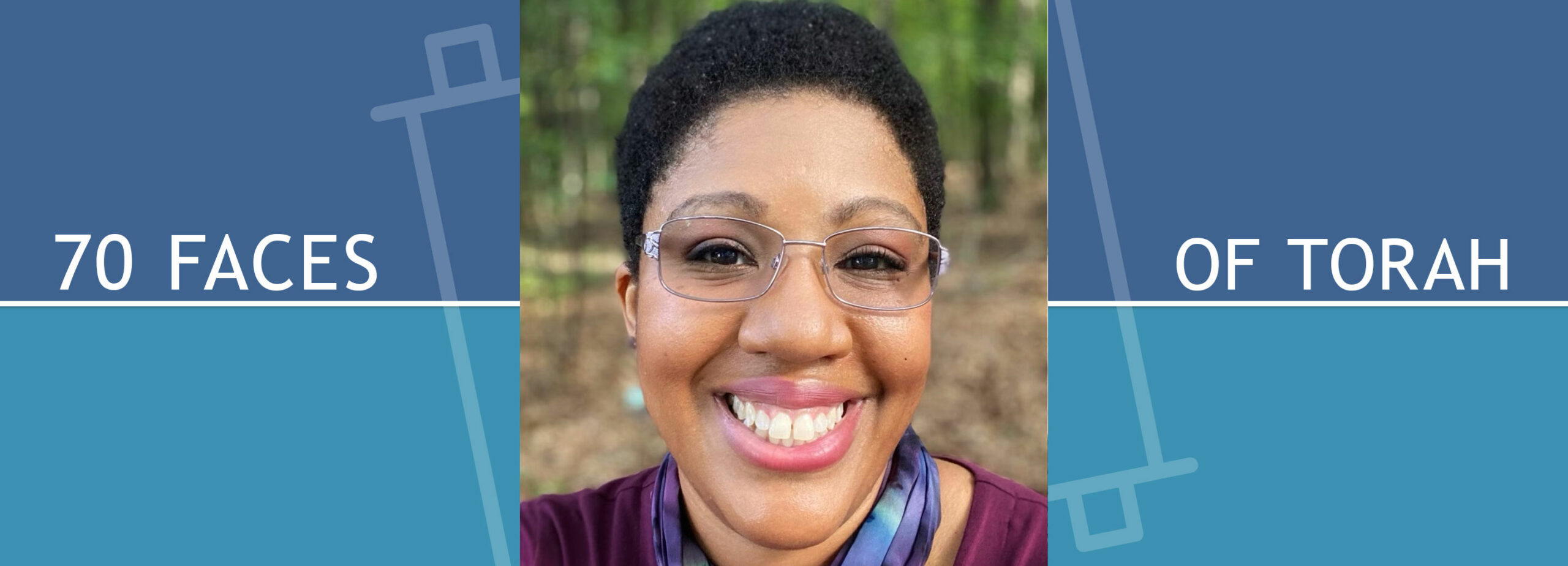Exodus Lighting the Plague of Darkness

Parashat Bo (Exodus 10:1-13:16) –
“Turn it and turn it for everything is in it,” we read in Pirkei Avot 5:22—“it” being the Torah. Elsewhere in Pirkei Avot we read, “Torah k’neged kulam,” Torah is relevant to everything. These verses are often cited when we are searching for a connection between our current realities and the Torah text. This week’s parasha, however, requires no such justification.
Parashat Bo describes the final three plagues that God wrought on the Egyptian government and its people—plagues of locust, darkness and the death of the firstborn. With the intensity of climate change over the past decade, we have seen a number of headlines that could have been taken straight from these chapters. Yet, nothing has rivaled these past two years of the pandemic. The plague of Covid-19 has touched all of our “tents” in some way, and the new Delta and Omicron variants continue to plague our communities.
In the Torah, the Egyptian people suffered eight plagues before they encountered the plague of darkness:
וַיֵּ֥ט מֹשֶׁ֛ה אֶת־יָד֖וֹ עַל־הַשָּׁמָ֑יִם וַיְהִ֧י חֹֽשֶׁךְ־אֲפֵלָ֛ה בְּכׇל־אֶ֥רֶץ מִצְרַ֖יִם שְׁלֹ֥שֶׁת יָמִֽים׃
Moses held out his arm toward the sky and thick darkness descended upon all the land of Egypt for three days.
לֹֽא־רָא֞וּ אִ֣ישׁ אֶת־אָחִ֗יו וְלֹא־קָ֛מוּ אִ֥ישׁ מִתַּחְתָּ֖יו שְׁלֹ֣שֶׁת יָמִ֑ים
People could not see one another, and for three days no one could get up from where he was; (Exodus 10:22-23).
Reading these verses today, we are reminded of the lockdowns and social distancing of recent years, and the “darkness” that many have experienced as a result. The Egyptians only had to lockdown for three (or some say seven) days. As we enter the third year of this enduring pandemic, the “descending darkness” calls out from the text to be explored.
Rabbi Yosef Gikatilla, a 13th Century Spanish Kabbalist, wrote:
Deep in the depths there are many kinds of pits and deep holes that are endlessly deep called “sectors of Gehinnom.” There, much destruction and misfortune can be found and because of the depth, the pits are completely dark. They are always dark and despondent places and as such are called “laila” (night) because there is no light, rather it is a place of perpetual darkness.
This description is reminiscent of the language of depression. Many people experience Seasonal Affective Disorder, a form of depression that comes with the darkness of winter, and those people pass through the dark places only temporarily. Others experience depression in the ways described by Gikatilla, as pit of “perpetual darkness.” But, having experienced the pandemic for almost two years (whereas Rashi said the ten plagues took only ten months!), the varying levels of depressive darkness that the Egyptians may have experienced as result of the persistent plagues is understandable and, unfortunately, relatable as well.
But there is always hope. The Talmud (Brachot 5b) tells the story of Rabbi Hiyya Bar Abba, who was sick, and Rabbi Yochanan, who came to visit him. Rabbi Yochanan asked, “Are your sufferings desirable?” To which Rabbi Hiyya Bar Abba replied, “I welcome neither they nor their reward.” Rabbi Yochanan then reached out his hand and lifted his friend up. Later, Rabbi Yochanan himself fell ill and Rabbi Hanina came to visit him. Rabbi Hanina asked, “Are your sufferings desirable?” To which Rabbi Yochanan replied, “I welcome neither they nor their reward.” Rabbi Hanina then reached out his hand and lifted Rabbi Yochanan up.
The Gemara wonders why Rabbi Yochanan, who was able to lift someone else up from their illness, was unable to lift himself out of his own illness. The answer: “A prisoner cannot free themselves from prison” (Talmud, Brachot 5b). We need to lift each other up and to allow ourselves to be lifted. On the plague of darkness, the verse continues, “But the Israelites had light in their dwellings.” (Exodus 10:23) This light serves as a key, a release from prison, a tool for uplift. The Torah reminds us that even in the darkest dark, we always have some light within.
As we continue through the dark months of winter, it is critical for us to guard the light, the joy, burning within ourselves so that we can share it with others and help drive out some of the darkness. Let us remember that the days are getting longer, and commit to finding ways to reach out and lift up others and light up one another’s lives. Check on your friends, a short call or text to share some light. Especially, let us check on the “Rabbi Yochanans” in our circles, those helpers, healers, and happy ones whom we might assume are doing “okay.” We never know who might need our hand until we reach it out.
Rabbi Tiferet Berenbaum is the Rabbi of Congregational Learning and Programming at Temple Beth Zion in Brookline, MA. She received her rabbinic ordination, as well as a Master’s of Jewish Education from Hebrew College in Newton, MA, and is currently pursuing a doctorate in Educational Leadership at Lesley University in Cambridge, MA. She is a 2021 Covenant Foundation Pomegranate Prize recipient in recognition of her leadership in Jewish education.

